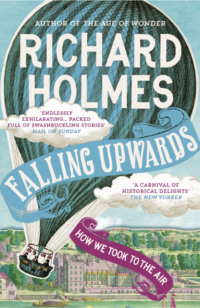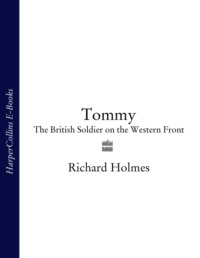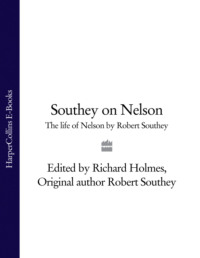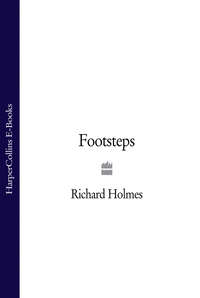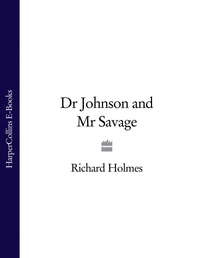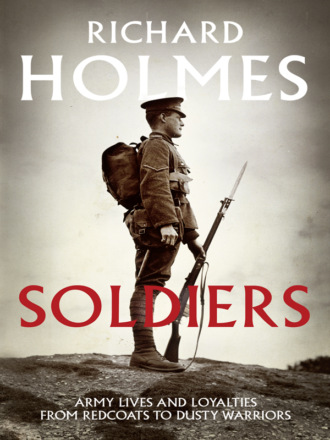
Полная версия
Soldiers: Army Lives and Loyalties from Redcoats to Dusty Warriors
He went to India, where his sense of natural justice (laced with a good slug of ambition) encouraged him to beat the Amirs of Sindh at Miani, going on to rule the newly annexed province with benevolent despotism. He returned home in 1847 after much bickering with the East India Company’s hierarchy. In 1849 that arch-conservative the Duke of Wellington was sure that Napier was the only general capable of rescuing the Sikh War from the head-on enthusiasm of the commander-in-chief in India, Sir Hugh Gough. By the time Napier arrived Gough had sledge-hammered his way to victory, and his subsequent trial of strength with the viceroy, Lord Dalhousie, saw Napier return home under a cloud.
Charles Napier died a general and a Knight Grand Cross of the Order of the Bath, an achievement not prevented by his political views or notorious scruffiness. His brother William, who had also fought with distinction in the Peninsula, was no less radical. When on half-pay in the 1830s, he declined suggestions that he should stand as an MP, and even more wisely refused command of the Chartists’ projected ‘National Guard’. He was a regular speaker at political meetings, and argued that while the army as an institution might indeed be politically neutral, ‘if a soldier does not know and love the social happiness springing from equal and just laws, how, in God’s name, is he to fight as the soldier of a free nation ought to fight?’21
He was not re-employed between the end of the Napoleonic wars and appointment as lieutenant governor of Guernsey in 1842, and in the meantime had produced his multi-volume History of the War in the Peninsula. This remains an extraordinary achievement, not least because of its flashes of tangible affection for private soldiers, such as John Walton, in Napier’s company of 43rd Foot on the retreat to Corunna. Walton was charged by determined French horsemen, but
stood his ground, and wounded several of his assailants, who then retired, leaving him unhurt, but his cap, knapsack, belts and musket were cut in about twenty places, his bayonet was bent double, and notched like a saw.22
There was much more to the book than narrative. Napier was convinced that the French army embodied the egalitarian principles of which he approved, while the British was dominated by privilege. ‘Napoleon’s troops fought in bright fields where every helmet caught some beams of glory,’ he wrote, ‘but the British soldier conquered under the cold shade of the aristocracy.’23 William Napier also died a general and a knight, as did his third martial brother, Thomas, who lost his right arm at Ciudad Rodrigo in 1812. Being in the same political camp as the rest of his family, Thomas was delighted to be governor of Cape Colony when slavery was abolished across the empire in 1834.
In the early nineteenth century in the unreformed House of Commons, officers sometimes sat for family-controlled constituencies. Occasionally, as an ingredient of the oleaginous mix of influence and obligation then known as ‘interest’, they were installed on behalf of a powerful patron, either because he valued their support, or because he believed that possession of a seat in parliament might improve their own career prospects. Lieutenant General Sir John Moore (killed at Corunna in 1808) was the son of a Glasgow doctor who acted as bear-leader to the Duke of Hamilton on his Grand Tour, travelling with the party. Hamilton not only secured John an ensign’s commission in the 51st Foot, but then proceeded to have him elected for the family-run Lanark Burghs in 1784–90. General Sir Henry Clinton sat from 1772 to 1784, first for Boroughbridge and then for Newark upon Trent. These were both constituencies controlled by his cousin, the Duke of Newcastle, who devoted almost as much attention to fostering his career as he did to the breeding of his affable Clumber spaniels. His widow married Thomas Crauford, and in 1802 gave another of her family’s pocket boroughs, East Retford, to his brother Robert ‘Black Bob’, who was to be mortally wounded commanding the Light Division at Ciudad Rodrigo in 1812.
There was much the same pattern in the Irish House of Commons until its disappearance with the Union of 1800. Arthur Wellesley, the future Duke of Wellington, sat for the family borough of Trim, and Edward Pakenham, brother of Wellesley’s wife Kitty, for his own family’s Longford borough. Galbraith Lowry Cole (Kitty’s rejected suitor) sat first for Irish constituencies, and then represented Fermanagh in the British House of Commons, although he spent most of his time commanding one of Wellington’s divisions in the Peninsula. He might have discussed politics with several of his senior colleagues, including cavalry commander Lieutenant General Sir Stapleton Cotton, MP for Newark in 1806–1814 and in the upper house as Lord Combermere thereafter.
From the 1790s there were as many redcoats as black in the Commons, for, with the country mobilised against France, it was hard to tell regulars from militia or volunteer officers. About half the members returned in 1790–1820 held part-time commissions. Indeed, Robert Crauford was nicknamed ‘the regular colonel’ to distinguish him from the numerous MPs whose colonelcies reflected their local status. William Pitt the younger, out of office as prime minister from 1801 to 1804, raised three battalions of Cinque Ports Volunteers. He modestly referred to them as ‘the advanced guard of the nation’, drilling them himself as their colonel commandant and expatiating, red-coated in the House, on the virtues of volunteering. There was a similar rash of part-time officer-MPs during the French invasion scare of the 1860s, and in 1869 no less than 130 had connections with the volunteer movement.
While a government could not affect a senior ranking military career, they could influence their income, being in control of the much desired government appointments. All promotion above lieutenant colonel was, until the reforms of the 1880s, wholly dependent upon seniority, and so once an officer had reached this rank even the government’s concentrated spite could not stop further ascent. But generals received no pay (getting by on the half-pay of their regimental rank) unless they were given a specific appointment, like command of troops engaged in operations or a governorship, at home or abroad. There were a good deal more such jobs than one might expect: Regency Brighton kept three generals gainfully employed. All of these posts were at the government’s disposal, as were regimental colonelcies, a useful source of income until the late nineteenth century.
George De Lacy Evans – ‘an obstreperous radical from an Irish landowning family’ – had served in the Peninsula, was present at the burning of the White House in 1814, and fought at Waterloo the following year.24 On half-pay after the war, in 1835–7 he commanded the British Legion that fought for Queen Isabella, the liberal claimant to the Spanish throne, in the first Carlist War. The British Government was anxious to help Isabella against her uncle Don Carlos but was not prepared to do so directly, although it is clear that Evans’ officers and men were ex-soldiers, most serving because of the lack of employment at home. But Evans was also an MP, sitting for Rye in 1830 and 1831–32, and then for Westminster from 1833 to 1841 and 1846 to 1865. Although the diarist Charles Greville testily described him as republican, he was impeccably radical, pro-Chartist but (like his middle-class electors, whose opinions he took very seriously) firmly opposed to political reform by force. He was passed over sixteen times for the colonelcy of a regiment, but when Horse Guards was reviewing the long list of generals to find commanders for the Crimean expedition, it settled on Evans to head the 2nd Division. His broad military experience commended him even though his political views did not, and, in the event, he proved one of the war’s most capable generals – and returned to radical politics after it.
The dukes of York and Wellington, as commanders-in-chief, did their best to consider claims to commissions, promotions and appointments on their own merits, and in 1827 Wellington told the king, ‘The principle is that the pretensions of officers to Your Majesty’s favour should be fairly considered, notwithstanding their conduct in Parliament.’ He was less scrupulous during his second term as commander-in-chief (1842–52) when ‘he made partial sacrifice of the claims of merit to those of political or party interest’, and Rowland Hill (commander-in-chief 1828–42) was, in the kindly way that had earned him the nickname ‘Daddy’, inclined to favour ‘Conservative members of Parliament, old friends, the offspring of brother soldiers and unfortunate widows, [who] all found the way open to their solicitations.’25
The abolition of the purchase in 1871 and the increasing formalisation of promotion made it harder for politics to influence an officer’s career for good or ill, though it has never wholly prevented it. While government could not stop the declining number of officer-MPs from speaking their minds in parliament, it stamped down hard on the public expression of political opinion by serving officers. Redvers Buller was one of the heroes of his generation. His VC, won in a dreadful fight with the Zulus on Hlobane mountain in 1879, was a remarkable achievement even by the high standards of that award. He was less successful commanding British troops in the Boer War, and in the mood of recrimination that followed his recall he was widely attacked. On 10 October 1901 he replied publicly to an outspoken article by Leo Amery. Both Lord Roberts, now the army’s commander-in-chief (and, no less to the point, Buller’s successor in South Africa), and the Conservative Secretary of State, St John Brodrick, had much to gain from off-loading the blame for initial failures onto Buller. For speaking without authorisation he was summarily dismissed on half-pay and denied the court martial he requested. Buller remained popular in the country at large, and when the Liberals came to power in 1905 they offered him a safe seat, which he was wise enough to decline.
The Buller affair did not stop officers from having political views, although the fate of a general with a VC and close connections to the king made them cautious about expressing them while they were serving. In 1913 it seemed likely that if the Liberal Government persisted in its plan to give Home Rule to Ireland, then Ulstermen would fight to avoid rule from Dublin. Thousands flocked to Unionist rallies, and the newly formed Ulster Volunteer Force drilled hard. Lord Roberts, outspokenly sympathetic to the Unionist cause, recommended Lieutenant General Sir George Richardson, a retired Indian Army officer, as its commander. Captain W. B. Spender, hitherto the youngest Staff College graduate, resigned his commission to serve on his staff. The North Down Regiment was commanded by a retired major general, and Richardson’s chief of staff was a former colonel. All these officers were recalled to service in 1914 when the UVF formed the bulk of 36th Ulster Division, whose service on the Western Front has left such an enduring mark on the province’s history.
It was evident that using the army to enforce Home Rule in Ireland would be fraught with difficulties, and in September 1913 the king wrote a statesmanlike letter to Prime Minister Asquith, reminding him
that ours is a voluntary army; our soldiers are none the less citizens; by birth, religion and environment they may have strong feelings on the Irish question; outside influence may be brought to bear upon them; they see distinguished retired officers already organising local forces in Ulster; they hear rumours of officers on the active list throwing up their commissions to join this force. Will it be wise, will it be fair to the sovereign as the head of the army, to subject the discipline, and indeed the loyalty of the troops, to such a strain?26
Sir John French, the CIGS, had already assured the monarch that the army ‘would as a body obey unflinchingly and without question the absolute commands of the King no matter what their personal opinion might be,’ though he added that intervention in Ulster would subject discipline to serious strain, and ‘there are a great many officers and men … who would be led to think that they were best serving their King and country either by refusing to march against the Ulstermen or openly joining their ranks.’ He concluded, though, that he would impress on all serving officers ‘the necessity for abstaining from any political controversy’.27
The so-called ‘Curragh Mutiny’ of 1914 remains instructive. It was not in fact a mutiny, and the best evidence suggests that while deployment to Ulster would have imposed a severe strain on the army’s loyalty, most officers would have obeyed unequivocal orders. Because they then required private means to serve, resignation would not have been as damaging as it would be today, when almost all officers live on pay and look forward to pensions. There remains little evidence of how the army might have behaved even if many of its officers had indeed resigned. In Francis Foljambe’s artillery brigade (then the equivalent of a regiment in any other army) all officers but one decided to go, changed into plain clothes and left command in the hands of the sergeant major and the NCOs. Non-commissioned personnel did not have the luxury of being able to send in their papers, and most had joined the army to make a living. Regiments recruited in Ireland would have been in an agonising position, and many of the Irishmen serving across the rest of the army would have found their own loyalty taxed. Most soldiers would have stayed true to their salt, and we would do well to remember that issues that generate heat in officers’ messes do not necessarily cause such dissention in barrack rooms.
Lastly, the incident occurred when Jack Seely, secretary of state for war, was a reserve officer with a reputation for personal bravery, and who knew most major players personally. The CIGS was very close to his political master and on good terms with both the Prime Minister and Lord Chancellor. Soon after French’s resignation he went off to lick his wounds with Churchill, First Lord of the Admiralty, aboard the admiralty yacht Enchantress. It was not a case of political ignorance of the ways and attitudes of the military, rather a crisis that slid out of control, leaving the army’s professional head caught between the hammer of government policy and the anvil of military opinion. Few senior officers would necessarily have fared better at the point of impact than Johnnie French.
The army has faced nothing on the scale of the Curragh ever since. Although there have been suggestions that it would have resented being asked to carry out some tasks, like intervention to help enforce majority rule upon Rhodesia/Zimbabwe in the 1960s, all the evidence suggests that the army does as it is told. This is the case even when some senior officers have substantial moral and practical reservations about the task, as was undoubtedly the case with the invasion of Iraq in 2003. It is striking that none of them, well aware of the rules against making public pronouncements, spoke at the time, although some of the evidence given to the Chilcott enquiry makes the scale of their unhappiness evident.
Some officers suffered for the public expression of their views. In 1938 Duncan Sandys, Conservative MP for South Norwood, Winston Churchill’s son-in-law and a subaltern in a Territorial anti-aircraft unit, raised issues of national security that reflected his own military specialism. He was then approached by two unidentified men (presumably representing the security service) who warned him that he risked prosecution under the Official Secrets Act. Sandys at once reported the matter to the Committee on Privileges, which ruled that disclosures to parliament were not subject to the Act, although an MP could be disciplined by the house if, in its view, his disclosures were damaging or unwarranted. Sandys’ territorial career was unharmed. He was badly wounded in Norway in 1941, retired as a lieutenant colonel in 1946, and as defence minister in 1957 produced the Sandys Review. The First World War case of Sir Henry Page Croft MP was different. He went out with his Territorial battalion in 1914, and was first of the few Territorials to command a brigade. Frank reports on his dissatisfaction with the high command – delivered informally rather than on the floor of the house – caused sufficient controversy to get him recalled in 1916: all his political connections could not save him.
The army’s own regulations grew progressively sterner about the need for serving officers to gain formal clearance for their publications. They had once been very relaxed. Lieutenant Winston Churchill published his idiosyncratic Story of the Malakand Field Force in 1898. The first edition of The River War, his account of the Omdurman campaign, was highly critical of Lord Kitchener’s desecration of the Mahdi’s tomb and of the poor quality of some military supplies, notably the soldier’s boots. Kitchener was furious, and although Churchill left the regular army soon afterwards, he was recommissioned during the Boer War, then became a yeomanry officer and commanded a battalion when Kitchener was still secretary of state for war.
The rules were much stricter after the Second World War. In 1949 the future Field Marshal Lord Carver, then an acting lieutenant colonel, reviewed Field Marshal Montgomery’s Alamein to the Sangro for the Royal Armoured Corps Journal. He unwisely observed that it was ‘a high price to pay for a short book’, and was nearly court-martialled. Montgomery ordered Carver’s director to ‘tell him that a junior officer is not allowed to criticise the head of the army’. Later, when Carver had written his own book on Alamein he found it difficult to get permission to publish. Although he was by then an upwardly mobile brigadier, permission was actually refused for a chapter on training and doctrine which was to have formed part of a Festschrift to mark Basil Liddell Hart’s seventieth birthday ‘as it was clearly controversial’.28
A more recent case of a serving officer being disciplined for public criticism, this time of his own superiors rather than politicians, is that of Major Eric Joyce. He enlisted into the Black Watch in 1978 and subsequently attended Stirling University, graduating with a degree in religious studies. Joyce became a probationary second lieutenant while at university, attended the Royal Military Academy Sandhurst after graduation, and was commissioned into the Royal Army Educational Corps in 1988. His service took him to Northern Ireland, Germany, and Belize, and during it he obtained two master’s degrees. He was promoted captain in 1990 and major in 1992 – the year that the RAEC was amalgamated into the newly-formed Adjutant General’s Corps and became the Educational and Training Services branch.
In August 1997 the Fabian Society published a pamphlet by Joyce called ‘Arms and the Man – Renewing the Armed Services’, maintaining that the forces were ‘racist, sexist and discriminatory’. He had written it without getting the permission to publish required by Queen’s Regulations, telling The Times that ‘you can’t get radical ideas like this into the public domain if you go through the chain of command.’29 Joyce denied that he was being covertly supported by ministers, but argued that ‘what I’m saying is broadly in line with the modernising agenda which the government is promoting.’30 He went on to launch the Armed Services Forum, which was authorised by the military authorities but contained severe criticism of the forces. When at length the army moved to discipline him, he affirmed that it was ‘terribly important’ that soldiers should be allowed to speak freely. He also condemned the army’s obsession with an ‘officer class’, and argued that Queen’s Regulations, simply ‘a convention’, were not legally enforceable.31 The Conservative opposition saw the Labour Government’s hand behind Joyce’s continued survival. In December 1998 Keith Simpson MP, a former Sandhurst lecturer, told the Commons that the case ‘strikes at the heart of the important principle that our armed forces do not participate in party politics.’ He went on to argue that:
He has his own political agenda. As a serving officer, he has openly been a Labour party supporter and, for the past four months, has been actively seeking to become a parliamentary candidate. Not only has he repeatedly and blatantly broken every agreement that he has ever made, but he has become party politically partisan.32
Major Joyce was eventually directed to resign his commission and did so in 1999. He went on to become Public Affairs Officer at the Commission for Racial Equality (Scotland), and, unsurprisingly, a Labour MP after winning the Falkirk West by-election the following year. He served as parliamentary private secretary (PPS) to a number of ministers, and in September 2009 resigned as PPS to Defence Secretary Bob Ainsworth. As one of the few Labour MPs with recent military experience he had been a logical choice for the post, but his letter of resignation went to the heart of his old unhappiness:
The Conservatives … think they can convince the public that we have lost our empathy with the Defence community … I do not think the public will accept for much longer that our losses [in Afghanistan] can be justified by simply referring to the risk of greater terrorism on our streets … Most important of all, we must make it clear to every serviceman and woman, their families and the British public that we give their well-being the greatest political priority. Behind the hand attacks by any Labour figure on senior service personnel are now, to the public, indistinguishable from attacks on the services themselves. Conversely, in my view we should allow our service personnel greater latitude to voice their views on matters which make distinctions between defence and politics pointless.33
Joyce’s resignation was overshadowed by the fact that he had become the first MP to claim more than £1 million cumulatively in expenses. The website Army Rumour Service suggests far more resentment amongst serving officers of an MP on the gravy train, than sympathy for a former colleague with a reformist agenda. His case underlines two hard old truths. First, no government, whatever its persuasion, relishes serving members of the armed forces pointing to political failings. Tony Blair abolished the individual services’ directors of corporate communication to reduce the risk of senior officers briefing the press ‘off message’. In that climate Air Chief Marshal Sir Jock Stirrup, when Chief of the Defence Staff, declined a ‘non-attributable’ lunch with the distinguished author Sir Max Hastings, regretting that he could only attend if a civil servant was on hand to take notes of the conversation. When General Sir Richard Dannatt spoke, within a few weeks of his appointment as Chief of the General Staff, of the need to withdraw troops from Iraq, it was immediately clear that he would not, as had been expected, succeed Sir Jock as CDS. Second, the army itself remains profoundly uneasy about criticism from within its ranks, especially when that criticism has an explicit political purpose.
For most of the army’s history its officer corps was closely aligned to the social class that sent members of parliament to Westminster. The proportion of serving officers sitting in parliament fell away substantially as the nineteenth century went on, but the two world wars of the twentieth century packed both houses with an unusually high number of folk with wartime service. That generation has now moved on, though in the second decade of the twenty-first century there are again MPs with direct links to the military. Modern wars have never been more political and senior officers are inevitably politically ensnared.
Конец ознакомительного фрагмента.
Текст предоставлен ООО «ЛитРес».
Прочитайте эту книгу целиком, купив полную легальную версию на ЛитРес.
Безопасно оплатить книгу можно банковской картой Visa, MasterCard, Maestro, со счета мобильного телефона, с платежного терминала, в салоне МТС или Связной, через PayPal, WebMoney, Яндекс.Деньги, QIWI Кошелек, бонусными картами или другим удобным Вам способом.



